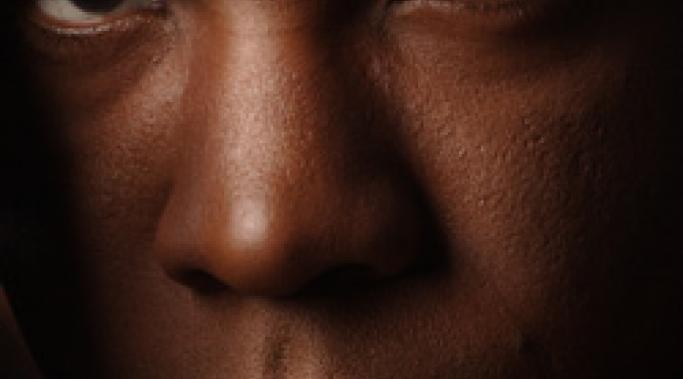"Life is pain, highness. Anyone who says differently is selling something." ~The Princess Bride
Life is pain. Or, at least, it can be. I've found that during severe episodes every breath, is, in fact, pain. There is nothing else. Just pain or unconsciousness. I prefer unconsciousness.
Breaking Bipolar
One of the problems with mental illness is that it is episodic. Particularly in the beginnings of mental illness, someone will have an episode of illness, and then an episode of wellness. While I'm never against episodes of wellness, this does lead to a problem: when we're well, we convince ourselves we don't have a problem and refuse to get help.
This is normal human behavior. No one wants to believe there is anything wrong with them. So it's natural to deny problems when they are not readily harming us. Unfortunately, this means that many people don't get help for a mental illness.
When we're sick, we're too sick to get help. When we're well, we deny we need it.
Doctors should take every patient seriously, but they don't. How can you get your doctor to take you seriously? Lets start with this recent comment (edited for length):
I have a masters degree in pharmaceutical science and have worked with clinical research for 11 years . . . I feel that maybe I get to close to be on the "same level" as my psychiatrist. . . I am afraid my doctor might think that I have better control of my bipolar "state" than I have. I do not have control . . . I want her to think of me as THE patient. But on the other hand I do want to be involved and discuss treatments etc. . . I think that she does not realize how bad I am right now. No one does. I am that happy, funny outgoing guy Johan. They just do not look behind the mask . . . It is strange that no one takes it seriously when you say you have suicidal thoughts. Mutilation . . . My doctor knows that I am depressed. But why does she not realize how bad it is?
So, how do you get your doctor to take your seriously when you often appear alright to your doctor? Can your intellect actually do you a disservice?
I have trust issues, but then, I think everyone does. We all grow up with people disappointing us and breaking our trust. It's just a part of becoming an adult.
But unfortunately, all relationships are based on trust, and this includes one with a doctor. It's essential to be able to trust what your doctor says and does. You have to be able to believe in what he's saying in order to try treatments that are often unpleasant and might make you feel worse before they make you feel better.
But doctors do a lot of things to break that trust, sometimes because they have to and sometimes simply because they do. So how's a patient to get over broken trust in a relationship with a doctor?
Most people I know with a mental illness try very hard to get better. They look for sources of help, support and information. Most people I know don't sit around waiting for someone to save them.
But then there are the people who do.
There are the people who whine and complain that no one will help them and yet turn down help or refuse to look for it. There are the people who kvetch that there is no support available to them in spite of the fact that the world is drowning in helplines available 24-hours-a-day.
In short, people think mental health services should be brought to them on a silver platter - and then be spoon-fed.
Sunday marked the beginning of the Mental Illness Awareness Week in the US and Canada. These weeks happen around the world at different times of the year. In the US, this week was set aside by Congress to bring together organizations fighting for the awareness of mental illness. In Canada, Mental Illness Awareness Week was established by the Canadian Psychiatric Association.
And while large organizations run these national campaigns, there are things that every one of us, as individuals, can do to help.
One of the most terrifying things about mental illness is that you can no longer trust what you feel. Oh sure, you feel it just as sure as day, but can you trust it enough to act on it? Not really. At least, not if you want to keep your job, friends, marriage and so on.
You can no longer simply feel and act. Now you must feel, think and then contemplate acting. It's exhausting and not a particularly reasonable thing to be expected to do.
I hate having bipolar disorder. It's my least favorite thing about me. For all the talents I have developed, possibly in part, due to bipolar disorder, I would give those up in a moment to simply not be sick.
But I did realize something about bipolar disorder - just surviving it is an achievement. And if I can survive bipolar disorder then I can do anything.
If you've been hanging out in the mental health corners of the web for longer than about a day, you've probably seen it - mental illness bashing. Mental illness, mental health, psychopharmacology, doctor, therapy and other-related-topics bashing.
It's extremely common and extremely hurtful and destructive. But it's the wild and woolly web, and that sort of nastiness happens in the jungle. Here are some tips for not letting other people's nastiness get to you.
I love my readers for so many reasons, but one of them is that they leave intelligent and interesting comments on my posts. This one caught my eye:
. . . in my experience anytime you challenge a p-doc they try to attribute it to a symptom such as paranoia or delusions of grandeur. So my question is how to talk back to a doctor when you don't agree with him if you are as knowledgeable as you obviously are without that happening or is it a lost cause?
(Ever think a doctor has delusions of grandeur? Just saying...)
I do not think it's a lost cause. I talk to my doctor like a colleague all the time, but it is tricky.


